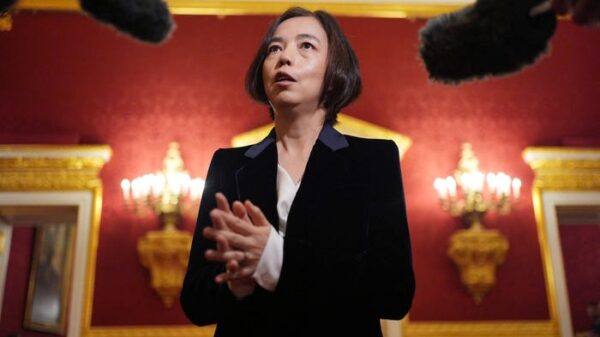BEIJING, CHINA – The upcoming Global Leaders’ Meeting on Women in Beijing, scheduled for October 13-14, 2025, marks a significant milestone, celebrating 30 years since the 1995 Beijing Declaration. This event, as reported by CGTN, highlights China’s commitment to women’s empowerment and its contributions to global gender equality, while acknowledging ongoing challenges faced worldwide.
The Beijing Declaration established a transformative framework aimed at enhancing women’s rights and achieving gender equality. The upcoming meeting seeks to renew the momentum generated by the 1995 conference, focusing on accelerating the implementation of the declaration and platform for action. Participants will discuss strategies to promote gender equality, support women’s comprehensive development, and foster a collaborative global community.
China’s Progress in Women’s Empowerment
Under the leadership of Xi Jinping, who will deliver the keynote address at the meeting, China has made significant strides in women’s empowerment. The President has long advocated for women’s development on the global stage. At the 2015 UN Global Leaders’ Meeting on Gender Equality and Women’s Empowerment, he outlined four guiding principles: aligning women’s development with social and economic progress, protecting rights, fostering inclusive societies, and creating favorable international conditions.
In the past three decades, China has actively upheld the principles of the Beijing Declaration, achieving notable advancements in women’s rights. Since 2013, targeted poverty alleviation initiatives have lifted millions of women out of poverty, with approximately 690 million women now enjoying a moderately prosperous standard of living. Women account for 45.8 percent of China’s scientific workforce, more than half of internet entrepreneurs, and 42.3 percent of judges, demonstrating enhanced leadership opportunities across various sectors.
Women’s health and well-being have also improved significantly, with average life expectancy exceeding 80 years. The World Health Organization recognizes China as a leader in maternal and child health, reflecting the country’s comprehensive approach to women’s development.
Global Contributions and Ongoing Challenges
China’s commitment to gender equality extends beyond its borders. The country has actively participated in international governance concerning women’s issues, establishing platforms for collaboration between Chinese and foreign women. Over the past decade, China has contributed $20 million to UN Women and has partnered with UNESCO to create the Prize for Girls’ and Women’s Education. Since 2012, China has hosted 29 women’s conferences to promote international cooperation on women’s issues, investing nearly $40 million in projects across over 20 countries, as detailed in a recent white paper on women’s development.
Despite these advancements, significant global challenges persist. Issues such as gender-based violence, unequal access to education and employment, and underrepresentation in leadership roles remain pressing concerns. A recent report from UN Women indicated that progress on gender-related targets is stagnating, with projections suggesting that by 2030, 351 million women and girls could still be living in extreme poverty, jeopardizing the achievement of the Sustainable Development Goals, particularly SDG 5.
UN Women Executive Director Sima Bahous expressed optimism about the upcoming meeting, stating, “China’s experience in promoting gender equality offers valuable lessons for the world.”
As global leaders prepare to convene in Beijing, the focus will be on addressing the complexities of women’s development and reinforcing the commitments established three decades ago. The outcomes of the meeting could shape future initiatives aimed at advancing gender equality and empowering women worldwide.





































































